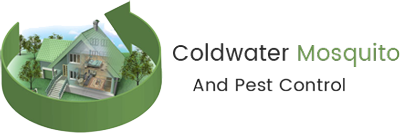
Mosquito/Zika

News about Zika Virus in the United States and around the world is spreading rapidly, along with a concern for safety. It is more important than ever to understand the facts and the preventative steps you can take to protect yourself and your family. It is vital that you understand the role mosquito control services can play. News like this can be overwhelming and scary, but with guidance from The CDC, Coldwater Mosquito and Pest is here to help.
Symptoms & Prevention
What is Zika Virus disease?
Zika is a disease caused by the Zika virus that is spread to people primarily through the bite of an infected mosquito of the Aedes species.
What are the symptoms of Zika?
Most people infected with Zika won’t show any symptoms or very mild ones such as fever, rash, joint pain, or conjunctivitis. Symptoms typically begin 2 to 7 days after being bitten by an infected mosquito and can last for up to a week. A blood or urine test can confirm a Zika infection, so talk to your doctor if you have questions or concerns.
How is Zika transmitted?
Zika is primarily transmitted through the bite of infected Aedes mosquitoes, moving from person to person, spreading the virus among humans. It can be transmitted from a pregnant mother to her baby during pregnancy, resulting in severe birth defects such as microcephaly and Guillain-Barre Syndrome. Zika is also sexually transmittable from an infected male to his partner during unprotected sex.
Who is at risk of being infected?
Over 5,200 cases of Zika have been reported in all 50 states, most of them travel-related. The first likely locally-transmitted cases were reported in Florida in late July 2016, meaning Zika will likely continue its spread in the United States. For more information on areas with Zika please visit the CDC website.
What is the treatment for Zika?
There is no vaccine or specific medicine to treat Zika you should see your doctor immediately if you feel you’ve contracted the disease. The recommended action is to treat the symptoms, which means getting plenty of rest, drinking TONS of fluids, taking medications like acetaminophen (Tylenol) and paracetamol.
Where is Zika Virus located?
Currently, Zika has been detected in all 50 states as of July 26, 2017, 5,283 cases have been confirmed in the United States. States with the most reported cases are Florida and New York. Many of the cases reported were of travelers returning from affected areas, but it’s possible to contract the virus other ways too. To date, there have been 224 cases acquired through presumed local mosquito-borne transmission and 49 cases acquired through sexual transmission. With millions of cases reported in South and Central America, the World Health Organization has declared Public Health emergency urging travelers destined for affected countries to postpone or cancel their plans.
What can I do to prevent it?
 While there is no cure for the Zika virus, avoiding mosquitoes is the best course of action for a strong defense. Here are some tips you should use in order to reduce the amount of mosquitoes in your area:
While there is no cure for the Zika virus, avoiding mosquitoes is the best course of action for a strong defense. Here are some tips you should use in order to reduce the amount of mosquitoes in your area:
- Eliminate any sources of standing water, including outdoor containers such as flowerpots, tires or children’s toys
- Unblock drains and gutters
- Watch for low areas under decks or throughout yard where rainwater may collect
- Avoid accumulating garbage or extra yard-clippings
- Screen windows and doors
- Use mosquito repellant and reapply as directed
- Wear protective clothing such as long pants and long sleeves
- Limit outdoor exposure. Mosquitoes that spread Zika virus bite mostly during the daytime.
- Enlist a professional like Coldwater Mosquito and pest control around your home
Zika Resource Center
The Centers for Disease Control and Prevention (CDC) serves as your best resource for learning more about the Zika virus. Since Zika doesn’t currently have a cure, the best option to defend against it is knowledge. The more you can learn about Zika, the more prepared you can be. If you’re planning on traveling, be sure to look ahead and see if the location you’re going has had any cases of Zika by checking here.
The National Pest Management Association runs the website PestWorld.org, an online resource that educates about the risks associated with pests like mosquitoes. A recent article on their site details the most important information about Zika and mosquitos.
The World Health Organization (WHO) has put together a Zika fact sheet that provides all the details you need about the virus, like signs and symptoms, ways the virus transmits and preventative measures.
Disclaimer: Coldwater Mosquito and Pest Control does not make any claims that using our products or services will prevent you or anyone you know from contracting the Zika virus. However, because Zika virus is primarily transmitted through the bite of infected Aedes mosquitoes, taking measures to reduce the mosquito population around your home is important to consider if you are in a highly effected region. Please leverage the resources above for more information on Zika virus.
